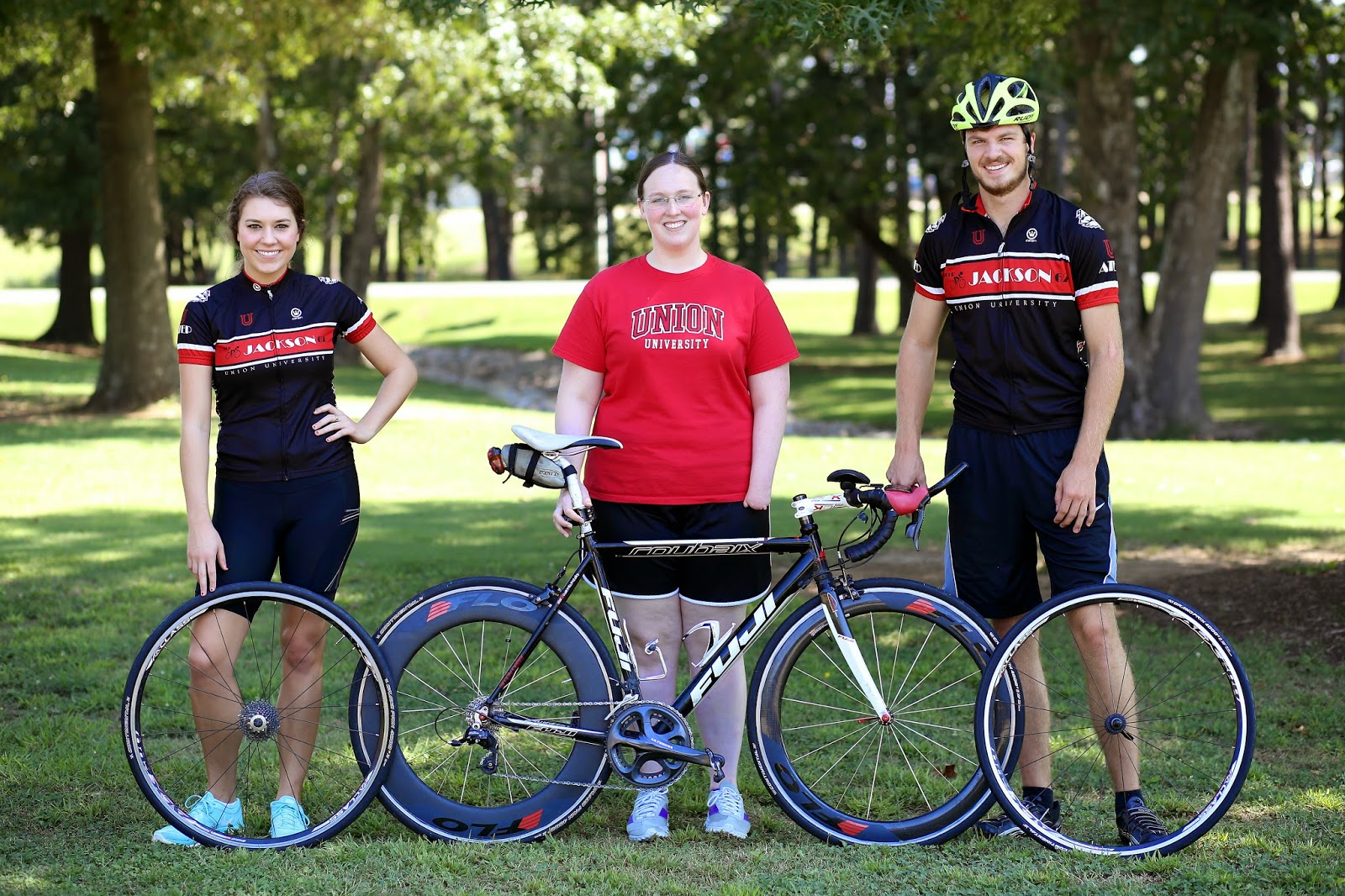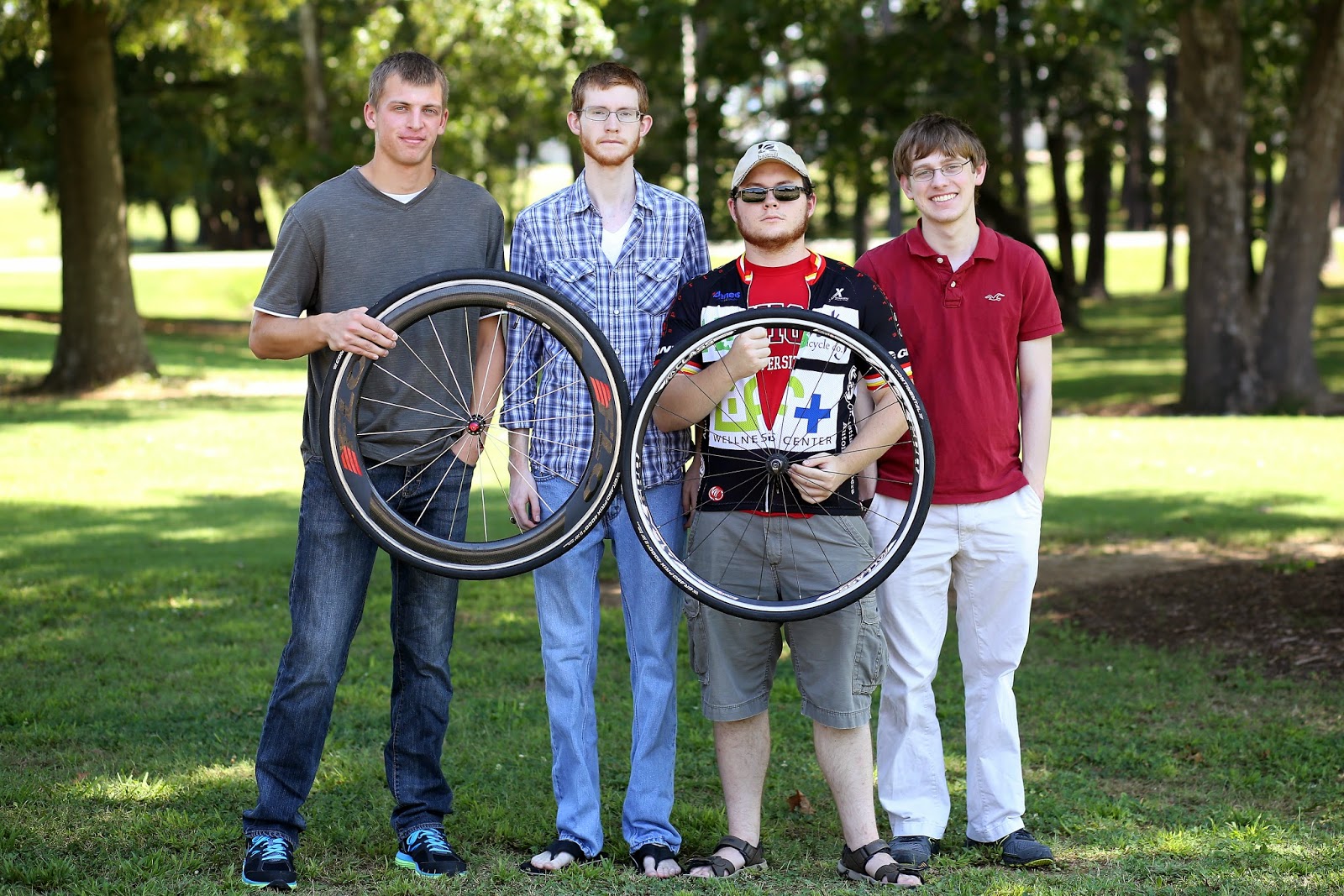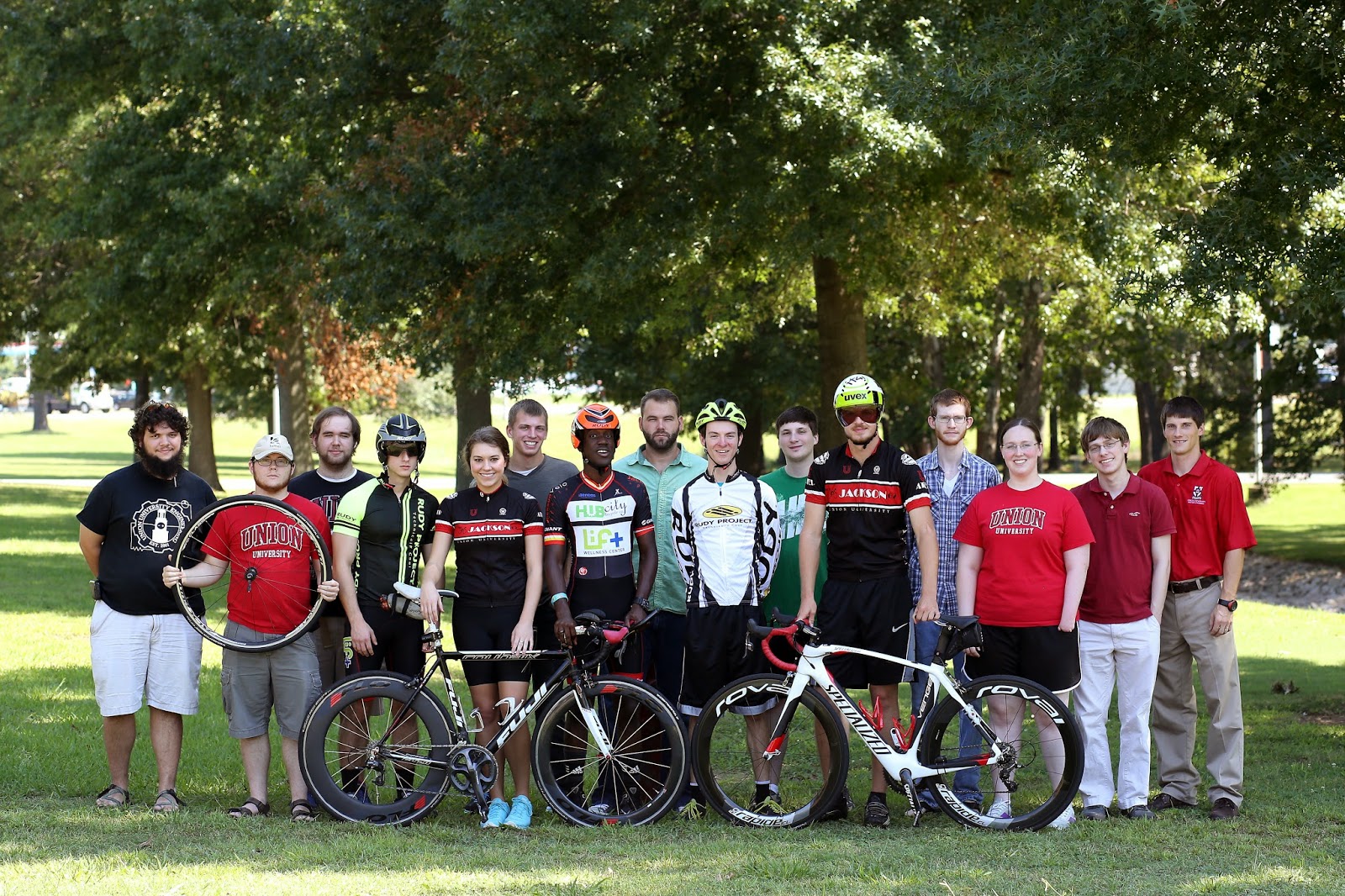Last year I spoke with Professor Georg Pingen from Union University in Tennessee. He mentioned that he had a class of students that wanted to study aero wheels on the road. I loved the idea and we sent a set of wheels to the university for testing. The results just came in and I wanted to share how they performed the test and what they found.
The Testing Procedure
Cyclists cycled along a two mile straight stretch of flat road. The bike was fit with the test wheels and an out and back was performed. When the cyclist returned to the beginning, the wheels were swapped and the course was repeated. The order of the wheels was swapped from test to test to limit fatigue error.
Experiment One – FLO 60/90 vs. Alex 200
One student team (Team 3) compared the performance of FLO Cycling aero-wheels. At an average test velocity of roughly 20.5 mph, students found an aero-wheel advantage of approximately 15W with 95% uncertainty bounds of 14.96W±4.56W. Utilizing the equation relating velocity to power (P=Ka*V3+F*V), students were able to use the power savings to predict 40K TT time savings at difference cyclist velocities. The students’ experiments predict a time savings of 1.77 minutes at 20 mph and 1.25 minutes at 30 mph.
 |
| Team 3 |
 |
| Team 3 on the Course |
Experiment Two – Front FLO 60 vs. Standard Front Wheel
One student team (Team 4) compared the performance of only the front FLO 60 against standard OE front wheels. The goal of the study was to determine if the front wheel makes a larger aerodynamic difference than the rear wheel, as often noted in the cycling literature. At an average test velocity of roughly 19.8 mph, students found an aero-wheel advantage of approximately 7.25W with 95% uncertainty bounds of 7.25W±5.89W. The average time savings over a 40K time-trial at that velocity was calculated by the students as approximately 50 seconds. This savings is roughly half of the savings obtained by using both wheels, thus not indicating larger savings from the front wheel.
 |
| Team 4 |
Thanks to Union University
I love this stuff. I think it’s great that Professor Pingen has allowed the students to learn by testing products in the real world. I want to thank Professor Pingen and all the students who were involved in the testing. Great work!

Co-founder at FLO Cycling. Jon manages the day to day operations and acts as the lead engineer for all FLO products.


